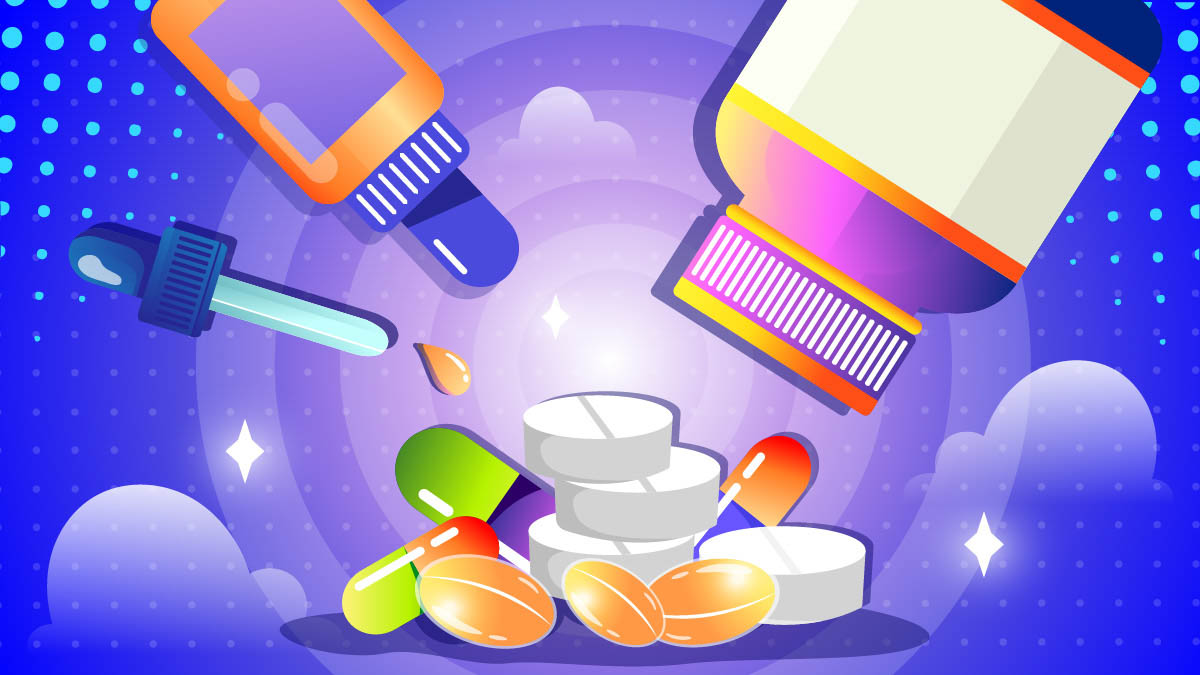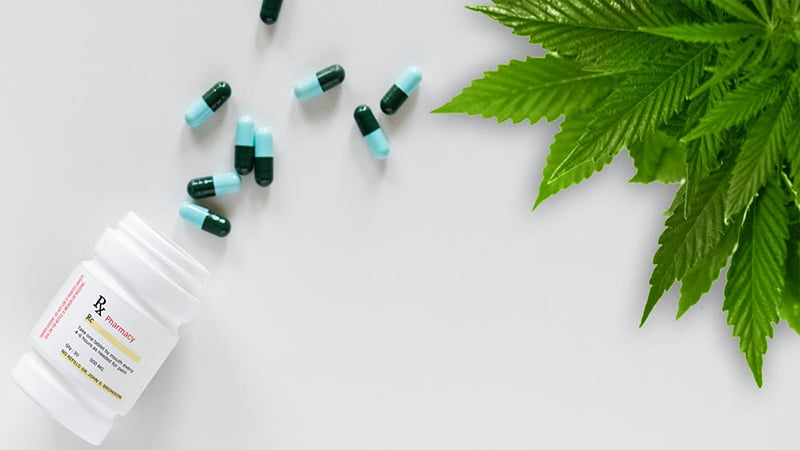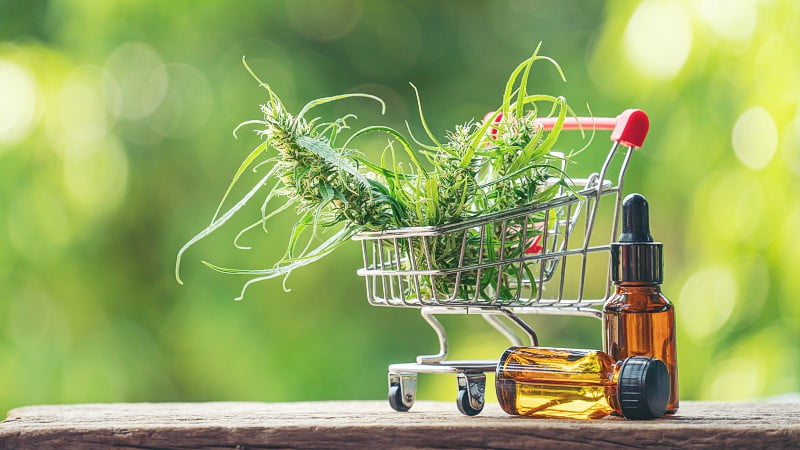CBD and Warfarin: Can You Safely Mix Them Together?

CBD oil is a natural remedy that contains the cannabinoid CBD extracted from the cannabis plant. It’s said to reduce inflammation, provide greater resistance to stress, and promote nerve health.
However, CBD oil may have an adverse drug interaction with anticoagulants such as warfarin.
Can you take CBD oil with warfarin? Read on to find out.
How Does CBD Affect Your Body?
Cannabidiol (CBD) is a compound that comes from the cannabis plant known for its health benefits. CBD oil can be extracted from hemp or marijuana plants. Hemp-based CBD oil is legal in all 50 states, while marijuana-derived CBD oil varies by state.
There are several ways in which CBD affects your body. To begin with, CBD is not addictive and does not cause any withdrawal symptoms. This means taking higher doses of CBD is okay as long as you don’t exceed your daily recommended amount or take too much at once.
Furthermore, CBD is non-psychoactive, meaning it doesn’t get you high, unlike tetrahydrocannabinol (THC), the other compound from the cannabis plant.
These are just some of the common reasons why people use CBD oil:
- Pain relief
- Anti-anxiety
- Acne cure
- Weight management
- Brain health
- Cardiovascular health
However, CBD is not for everyone. Some side effects have been reported in rare cases, which may include:
- Dry mouth
- Fatigue
- Sedation
- Appetite changes
- Diarrhea
Additionally, using CBD alongside certain medications raises some questions.
How Does CBD Oil Affect Your Blood?
It has been shown that CBD itself has mild anticoagulating effects, meaning that it can act somewhat like a blood thinner. Nevertheless, more studies must be done to better understand how CBD affects your blood.
In clinical trials, case studies, and scientific research, CBD is shown to work well with the endocannabinoid system in the body.
Following the passage of the Farm Bill, scientists now have greater access to CBD and can finally study its potential as a healing agent. As a result, researchers are conducting more and more studies and clinical trials on CBD every day.
Does CBD Interact With Medications?

Various pharmaceuticals, herbal products, and health supplements can interact with CBD. As a result, the use of other drugs might need to be reduced or modified if CBD is introduced.
The main thing is to understand that some medications should not be taken together.
There are many other factors that can influence drug interactions, such as one’s health condition, the dose of a medication, and the dose of CBD. So if you’re starting a new medication, consult your doctor first before taking CBD oil.
Does CBD Interact With Warfarin?
Short answer: Yes.
Taking any kind of medication or substance requires your body to metabolize it. In the metabolic process, drugs are broken down so the body can absorb their effects.
The chemical structure of a drug determines how it’s broken down by the liver, thereby determining how quickly it leaves your system. The enzyme family called cytochrome P450 (CYP450) is responsible for converting foreign substances and making them easily excreted by the body.
The CYP450 enzyme may be slowed or accelerated by some medication or substance, including CBD.
Drug interactions occur because your body’s metabolism rate is altered during this time. This is referred to as the “grapefruit effect” due to the grapefruit’s ability to slow down the absorption of the drug by the body.
CYP450, CBD Oil, and Warfarin
CYP450 is predominantly responsible for the metabolism of warfarin. CBD inhibits this enzyme class. CBD competes with warfarin on the same metabolic pathway, according to a US National Library of Medicine study published in 2017.
CBD can cause warfarin to stay in the body for too long without being broken down when taken together. This can result in unwanted side effects such as excessive bleeding or overdose.
What Can Increase the Risk of Bleeding?
Warfarin treatment can increase your chances of bleeding during the first three months. The risk is even greater for older adults. You may also be at risk if you use other blood-thinning medications.
Genetic factors may also cause some people who take warfarin to be more prone to bleeding. Your doctor may recommend a genetic test to determine the best dose for you.
Other medical conditions that increase your risk of bleeding are:
- Alcoholism
- Cancer
- History of stroke
- Kidney problems
- Liver disease
- Ulcers, gastritis, and peptic disease
- Uncontrolled blood pressure
Can You Take CBD Oil With Warfarin?
CBD oil and warfarin should not be taken together. Taking any form of CBD during your warfarin treatment should be avoided as well.
Warfarin is an anticoagulant (blood thinner) medication that prevents the formation of dangerous blood clots that could lead to heart attacks or strokes. Warfarin is available under several brand names, including Coumadin and Jantoven.
Severe bleeding, headaches, swelling, or sudden pain in the extremities are some of the risks associated with warfarin.
A 2017 study published in Epilepsy & Behavior Case Reports showed that CBD increased the effects of blood-thinning drugs like warfarin by slowing down how the body metabolizes the substance. CBD may potentially increase some of the risks of warfarin by extending its duration in the body.
If you’re currently taking warfarin and want to use CBD for another condition, be sure to speak with your healthcare provider first.
Can You Take Other Blood Thinners With CBD Oil?
Drug interactions can be influenced by a number of factors, including your health, weight, and general tolerance. When CBD oil is combined with blood thinners, several considerations must be made.
Two of the remaining three oral anticoagulants approved by the FDA to treat irregular rapid heart rates are also metabolized by the CYP450 system. As a result, they will also be affected by CBD’s grapefruit effect.
Rivaroxaban and apixaban are the oral anticoagulants described.
Further, a study published in 2011 described how dabigatran (Pradaxa), another oral anticoagulant, doesn’t undergo CYP450 metabolism. A review of dabigatran suggests that the drug may have a few drug-food and drug-drug interactions. The use of dabigatran as an alternative to warfarin treatment is also being considered.
Once again, it’s advisable to consult your doctor before taking any anticoagulant together with CBD to determine safety and tolerance.
The FDA has authorized warfarin use for the following purposes:
- Treatment of venous thrombosis, associated pulmonary embolisms, and pulmonary thrombosis.
- Treatment of thromboembolic complications caused by cardiac valve replacement or irregular or rapid heartbeats (atrial fibrillation).
- Identify and prevent deaths, recurrent heart attacks or myocardial infarctions (MI), and other thromboembolic events like strokes and systemic embolisms that may follow a cardiac arrest.
Can CBD Replace Warfarin?
The overall research on CBD is relatively young compared to traditional drugs. Currently, CBD has not been explicitly evaluated as a safe replacement for warfarin or any form of the anticoagulant.
Phytomedicine published a study written in 2007 that used an obese rat model to show that cannabis extracts may have anticoagulant effects. In this study, cannabinoids like cannabinol (CBN) and tetrahydrocannabinol (THC) exhibited anticoagulant properties.
According to the researchers, the cannabinoids THC and CBN from Cannabis sativa were possible treatments for thrombosis and diabetes, a condition that could lead to an irregular rise in blood clotting.
There have been limited studies to determine if CBD can act as an anticoagulant, and at this time, there is no evidence that CBD can act as an anticoagulant medication.
You should still consult a medical expert before taking CBD as a substitute for warfarin or any prescription medication. There are still many unknowns regarding CBD’s effects on the body.
What To Look For When Shopping for CBD Oil

The market for CBD oil has expanded a lot in recent years. It is available online and in stores across the country. However, not all CBD oils are created equal and there are certain things you should know before purchasing your first bottle.
CBD Concentration
Some people are not sure what CBD concentration means when buying CBD oil.
There are many different types, and some can be much stronger than others. The concentration will depend on what you’re looking to use the CBD oil for and how often you plan on using it. The higher the concentration, the stronger the effects are likely to be.
There is also a limit to the amount of THC that can be present in a product. The percentage of THC in CBD oil should be clear on its label.
CBD Dosage
The next thing you should look at is how much CBD is in each dosage (the number of milligrams). Taking a certain amount of CBD will vary depending on the concentration as well as other factors like age or medical needs.
CBD Vendor’s Certificate of Analysis (COA)
Before buying CBD oil, it’s important to check its COA. This will not only ensure that the product is of good quality but also tell you if the vendor has been trustworthy in providing accurate information about the product.
This certificate ensures that the product is safe, and you shouldn’t have any worries about what you’re putting into your body. It lets you know that this product has been tested and meets all safety standards mandated by law.
CBD Source
When shopping for CBD oil, check the CBD’s source. If you’re in the United States, it’s best to buy CBD that uses American-grown organic hemp.
Hemp is a bioaccumulator, which means it absorbs the nutrients and elements from the soil it’s planted. These nutrients are dissolved within the plant’s cell walls and then released throughout its life cycle.
Bioaccumulators are effective at absorbing either good or harmful elements. So you can also compromise the quality of the CBD plant if polluted soil is used.
Ideally, hemp should be grown in fertile soil with no harsh chemicals.
Additional Ingredients
CBD products may be formulated with beneficial ingredients like MCT oils or melatonin.
Unfortunately, CBD products can sometimes contain potentially hazardous ingredients, such as vegetable glycerin and propylene. So be aware of these substances and steer clear of CBD products containing them.
Other Products That May Interact With Warfarin
In addition to individual factors, there are several drug interactions that can change how your body reacts.
Warfarin interacts with vitamins, nutritional supplements, drugs, and food. These items may reduce the efficacy of warfarin or increase bleeding risks.
Here’s a list of common foods and drinks to avoid while taking warfarin:
- Grapefruit or grapefruit juice
- Cranberries or cranberry juice
- Pomegranate or pomegranate juice
- Garlic
- Black licorice
- Alcohol
Here’s a list of common drugs to avoid while taking warfarin:
- Abnormal heart rhythm medications, such as amiodarone (Pacerone, Nexterone)
- Antibiotics
- Aspirin or products containing aspirin
- Antacids or laxatives
- Antifungal medications, including fluconazole (Diflucan)
- Colds and allergy medications
- Ibuprofen (Advil, Motrin IB, etc.)
- Naproxen sodium (Aleve, Naprelan, etc.)
- Product containing acetaminophen (Tylenol, etc.)
Here’s a list of common herbal or nutritional supplements to avoid while taking warfarin:
- Vitamin E
- Ginseng
- Green tea
- Dong quai (Angelica sinensis)
- St. John’s wort
- Coenzyme Q10 (ubiquinone)
Key Takeaways on Interactions Between CBD and Warfarin
The body absorbs CBD through the CPY450 system, which also helps your body process warfarin. Therefore, combining CBD with warfarin is not advisable.
If you insist on taking CBD together with it, warfarin may stay in your body for longer than necessary. This can lead to severe side effects such as excessive bleeding and even death from overdose.
If you’re on warfarin or about to use this medicine, be mindful of the other foods, drugs, and supplements that you should avoid as well.
CBD oil is a legal and safe drug in the United States. However, there are laws different for every state and you should make sure we check the law first before you buy CBD oil.
There are many benefits of using CBD. However, there are many fake products out there that don’t meet quality standards. To maximize its benefits and prevent any harm to your body, be sure to buy from a trusted source. You should also make sure that the product has been third-party tested.
Most importantly, it’s highly recommended to seek medical advice before using CBD products as a replacement for a prescribed drug or a nutritional supplement.
Have you tried taking CBD and warfarin together? Share your experience in the comments below to help other readers!
References:
- Grinspoon, P. (2019, Aug 27). Cannabidiol (CBD) — what we know and what we don’t. Retrieved from https://www.health.harvard.edu/blog/cannabidiol-cbd-what-we-know-and-what-we-dont-2018082414476. (1)
- Yamaori S., Koeda K., Kushihara M., Hada Y., Yamamoto I., Watanabe K. Comparison in the in vitro inhibitory effects of major phytocannabinoids and polycyclic aromatic hydrocarbons contained in marijuana smoke on cytochrome P450 2C9 activity. Drug Metab Pharmacokinet. 2012;27(3):294–300. (2)
- Deaton, J. G., & Nappe, T. M. (n.d.). Warfarin Toxicity. StatPearls. Retrieved from https://www.ncbi.nlm.nih.gov/books/NBK431112/
- Doliner B, Jaller JA, Lopez AJ, Lev-Tov H. Treatments to prevent primary venous ulceration after deep venous thrombosis. J Vasc Surg Venous Lymphat Disord. 2019 Mar;7(2):260-271.e1.
- W., M., D., K., & M., B. (2013). Co-administration of rivaroxaban with drugs that share its elimination pathways: pharmacokinetic effects in healthy subjects. doi: 10.1111/bcp.12075.
- Ganetsky, M., Babu, K. M., Salhanick, S. D., Brown, R. S., & Boyer, E. W. (2011). Dabigatran: Review of Pharmacology and Management of Bleeding Complications of This Novel Oral Anticoagulant, 7(4). doi: 10.1007/s13181-011-0178-y
- Sharp CR, deLaforcade AM, Koenigshof AM, Lynch AM, Thomason JM. Consensus on the Rational Use of Antithrombotics in Veterinary Critical Care (CURATIVE): Domain 4-Refining and monitoring antithrombotic therapies. J Vet Emerg Crit Care (San Antonio). 2019 Jan;29(1):75-87.
- Badjatiya A, Rao SV. Advances in Antiplatelet and Anticoagulant Therapies for NSTE-ACS. Curr Cardiol Rep. 2019 Jan 12;21(1):3.
- Unger, E. F. (2015, October 16). Atrial fibrillation and new oral anticoagulant drugs. Retrieved from https://www.fda.gov/drugs/news-events-human-drugs/atrial-fibrillation-and-new-oral-anticoagulant-drugs
- Coetzee, C., Levendal, R. A., van de Venter, M., & Frost, C. L. (2007). Anticoagulant effects of a Cannabis extract in an obese rat model. Phytomedicine, 14(5). doi: 10.1016/j.phymed.2006.02.004